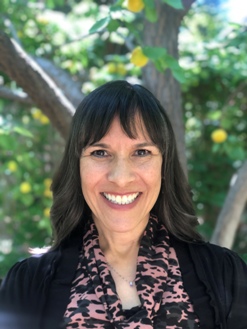Kamilla Venner, Ph.D.

Role: Co-Investigator
As a licensed clinical psychologist and a member of the Athabascan tribe, my career in the field of addictions has centered on improving substance use related health outcomes in partnership with American Indian/Alaska Native (AI/AN) and other Indigenous populations. In over 25 years of work, I have conducted community-based participatory research and employed dissemination and implementation methods to develop SUD interventions and address racial/ethnic health inequities with diverse populations. My first grant, a K-23 award, sought to understand how AI/AN adults resolved alcohol use disorder (Venner & Feldstein, 2006; Venner et al., 2018), and I identified barriers to them seeking help via qualitative interview (Venner et al., 2012). During my K-23 award, I obtained an NIH pilot grant to adapt motivational interviewing (MI) in partnership with AI/AN which resulted in a free manual downloadable on the CASAA website. I have furthered these implementation efforts by consulting with national and international researchers on how to implement MI with Indigenous populations. For example, I was Co-I for the NIDA CTN Southwest Node for 7 years providing consultation, MI trainings, and collaboration on a SUD study with AI/AN populations. Additionally, I was Co-I on a grant seeking to implement screening and brief intervention in urban and rural primary health care clinics serving AI and Hispanic clientele. I also served as PI for an R01 to adapt MI and the Community Reinforcement Approach (MICRA) in partnership with a Southwestern Pueblo, in which we conducted an RCT comparing the adapted treatment to treatment as usual and published the preliminary positive results of the pilot of MICRA (Venner et al., 2016) and the primary outcome paper (Venner et al., 2020). I was also the PI of an R34 from NIDA to culturally tailor the Community Reinforcement Approach and Family Training (CRAFT) with a tribal partner to use in a future RCT to examine treatment outcomes. In 2017, I led a NIDA funded meeting to learn of AI/AN perspectives on medications to treat opioid use disorder (OUD) and found many barriers, unless it is culturally centered (Venner et al., 2018). This led to a NIDA Clinical Trials Network grant, for which I am a co-lead (aka MPI), to culturally center medication treatment for OUD and test its implementation in four programs serving AI/AN consumers. I am an MPI for an R61 to geocode NM State data and integrate it with Indian Health Service for correct identification of AI/AN people to ascertain the correct prevalence of opioid overdose with and without mortality. Finally, I am the MPI of another implementation grant, called OPTIC, to focus on culturally centereing screening and brief intervention for comorbid chronic pain and opioid use disorder with three programs serving AI/AN clients. OPTIC is part of a larger CASAA Center grant called IMPOWR. This bolus of work privileges culture and cultural holistic frameworks of wellbeing and we hope this improves Tribal engagement, retention, and outcomes to help reduce the substantial health disparities.
